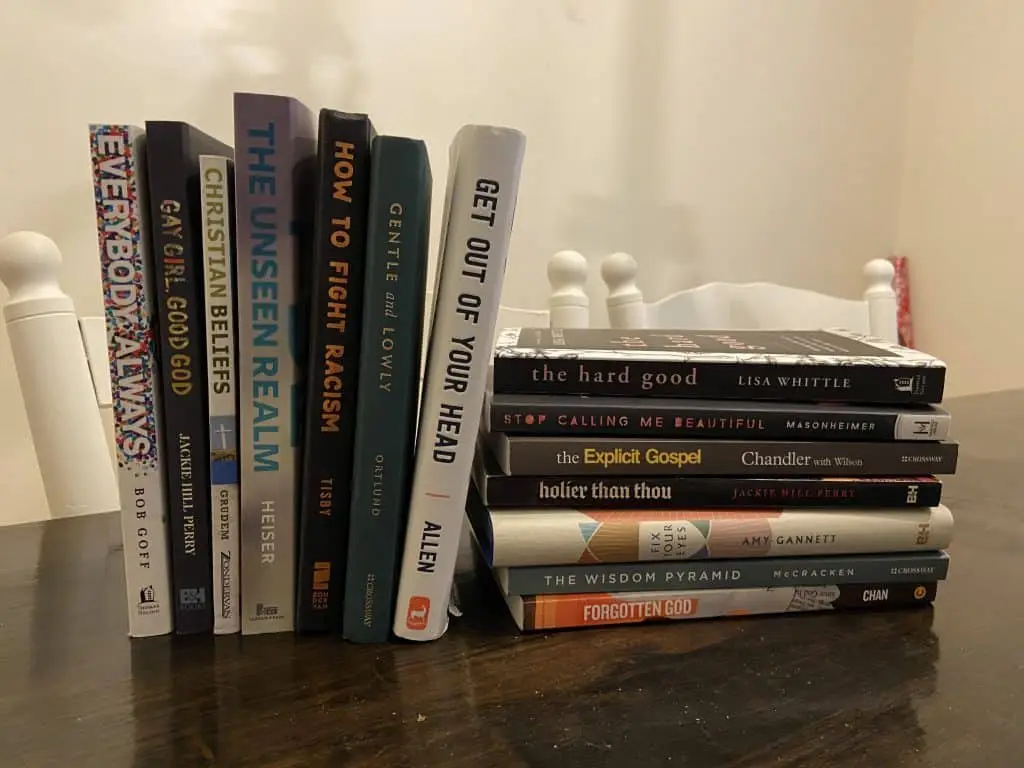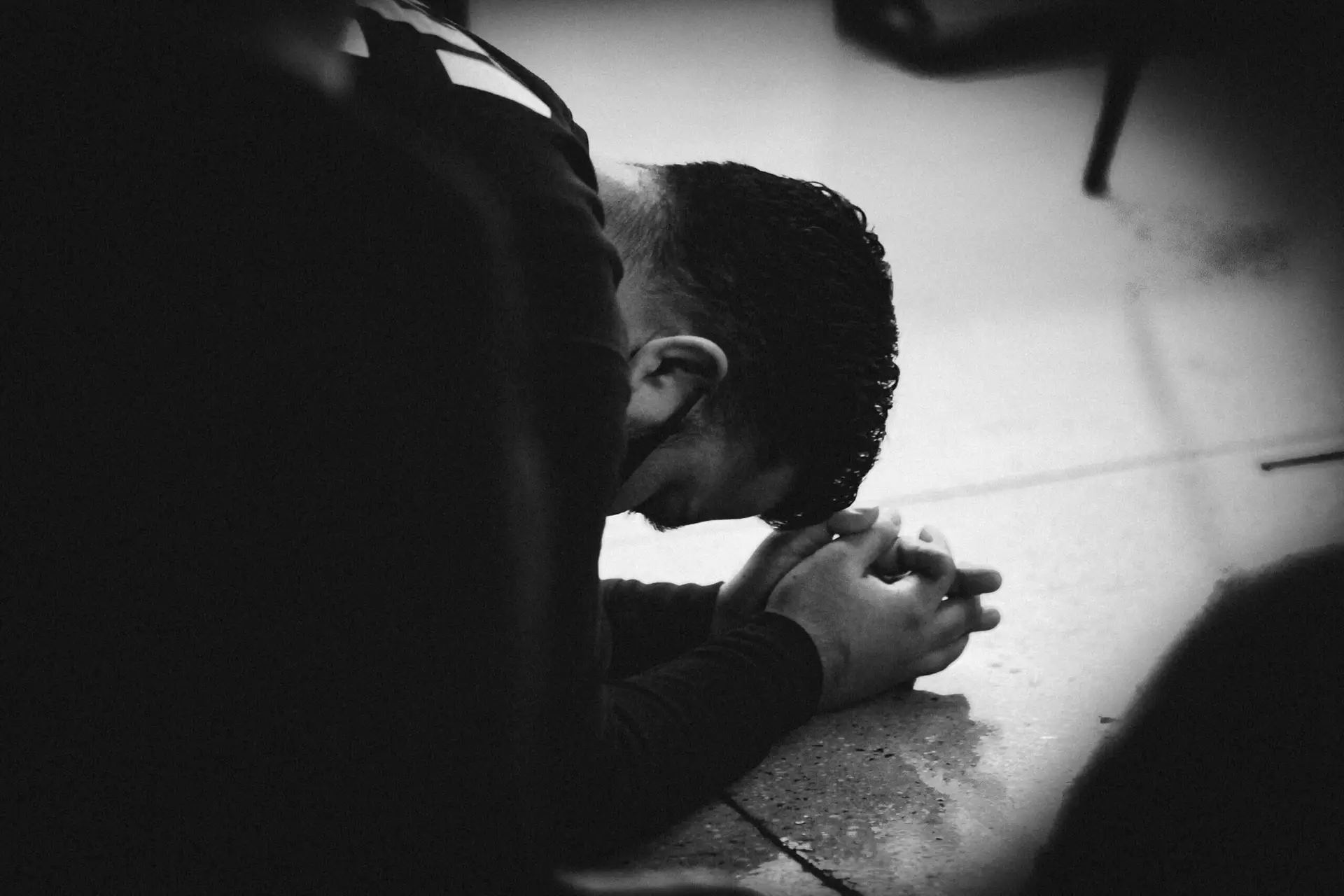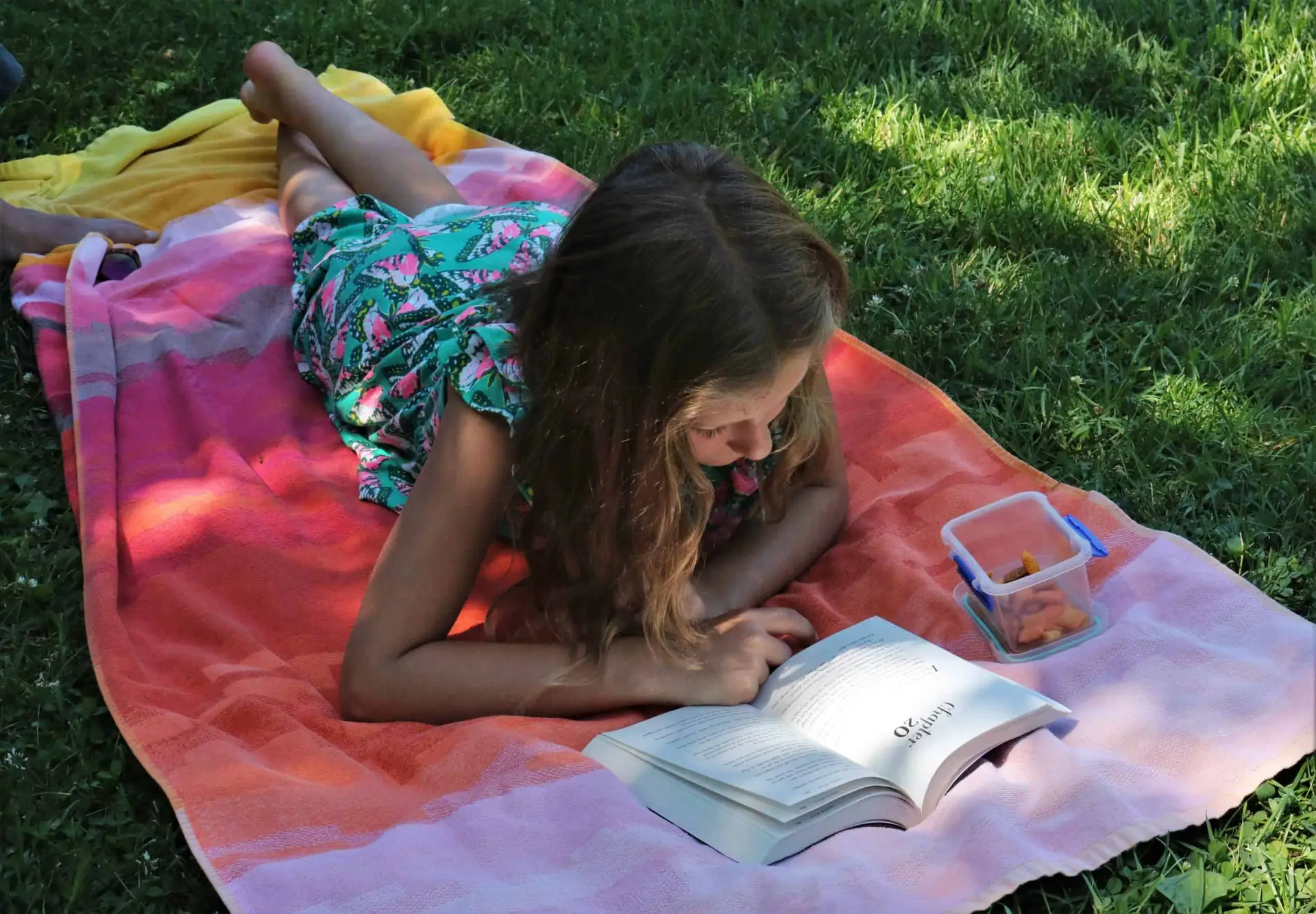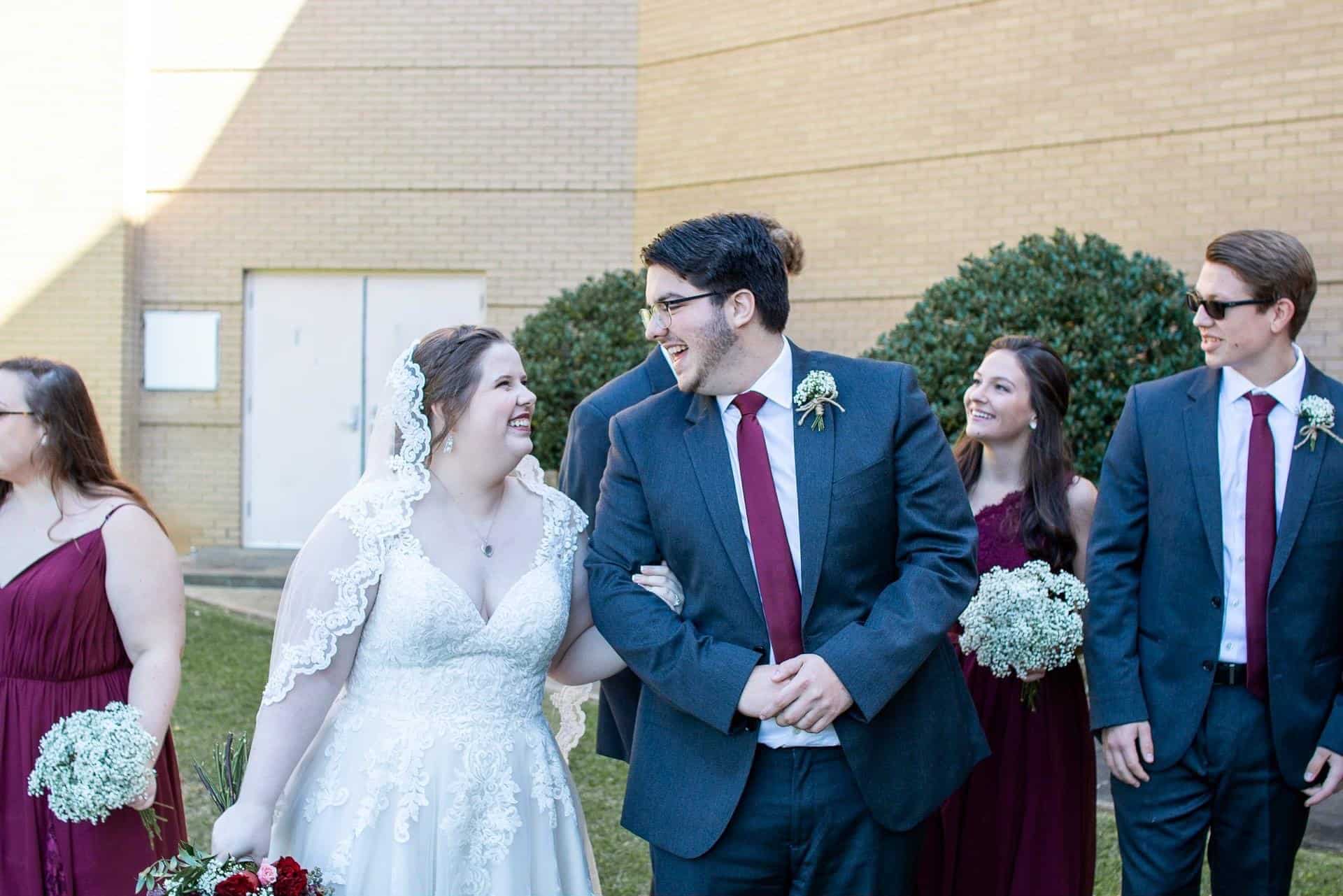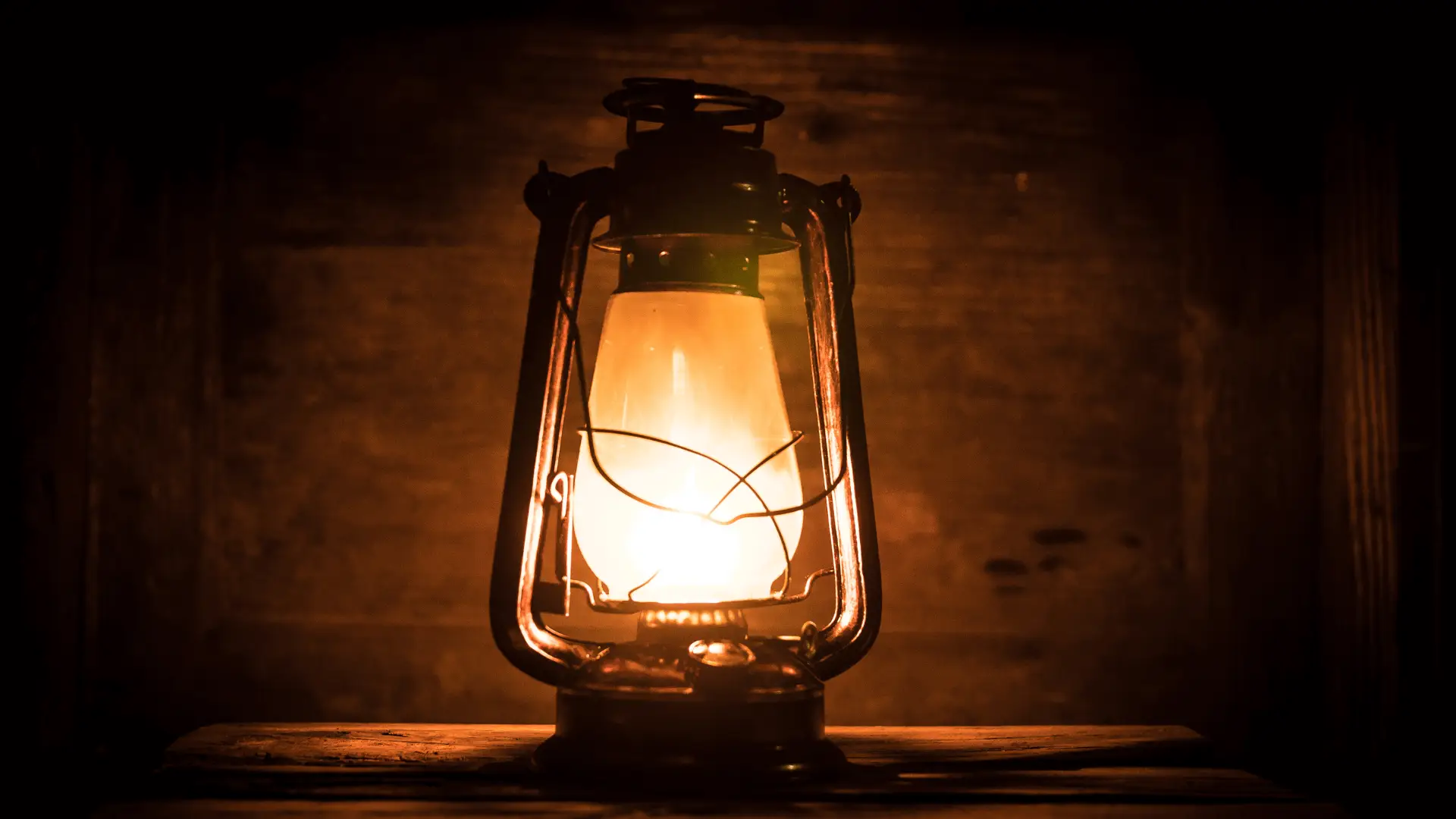When I was growing up I was the epitome of a bookworm. I was the kid that would finish their schoolwork early and read for the rest of class. I’d stay up way later than any child should just to finish a book. I believe I read the entirety of Little Women in about 3 days in the 5th grade.
I love literature so much that I studied it in college. That’s right, I paid good money to be told by adults to read books (most of which I’d already read) and write papers on them. Unfortunately, I think that was a large reason why I stopped reading for fun. I had to read so much for school that the last thing I wanted to do in my free time was read more.
After I graduated in 2019 I didn’t read anything for two years and this past year in 2021 I decided it was time to start reading again. My goal to ease myself back into reading was to read one book a month. I ended up reading 16 books! Not too shabby for not reading for two years.
Here is a rundown of all the books that I read in 2021 in the order that I read them:
1. Everybody, Always: Becoming Love in a World Full of Setbacks and Difficult People
Author: Bob Goff
Rating: 2 of 5
To kick off the year I started with something that I considered to be a lighter read. I’d heard lots of great things about this book and its predecessor Love Does so I thought it would be the perfect book to start with. Unfortunately, it didn’t really live up to the hype. However, it did help me figure out what kind of things I wanted to spend my time reading.
This book is a compilation of short stories of how the author Bob Goff has shown love or learned to show love in a Christ-like manner. It’s heartwarming for sure, but I felt like it was incredibly unrelatable and was more about the author than it was about how and why we should offer love to those we come in contact with.
Honestly, my biggest gripe with this one was the weird flexes Goff sprinkled in throughout the book. The rhythm of the books seemed to be a weird unrelatable flex, followed by a problem he noticed, followed by how he showed love in that situation. It was just off-putting. Most folks can’t book their own private concert in their home, or hold office hours at Disneyland, or teach their son a lesson in their own private plane at their Alaskan vacation home. It was just difficult to get to the core of the message through all the pomp and circumstance.
2. Gay Girl Good God: The Story of Who I was and Who God Has Always Been
Author: Jackie Hill Perry
Rating: 5 of 5
I will read anything and everything that Jackie Hill Perry ever writes. I can’t say that of most people but I can say that confidently for JHP. She has a way with words that just connects with me on an intellectual and spiritual level. Even if you don’t like what she’s writing about, her writing is so beautiful it’s worth reading. Just so happens I was very interested in the topic as well as the authorship.
While this book of course is controversial simply because of the subject matter I’d argue that it’s worth reading no matter your personal feelings if just to understand her point of view better. She tells her story beautifully and in a way that is not only informative but also immersive. It’s like being a fly on the wall inside her mind.
JHP did an excellent job of telling her story but an even better job of presenting the gospel and the supremacy of God. She uses her personal testimony to point back to God and that’s what I loved the most! She presents a clear explanation based on scripture for how she lives her life and encourages others to do likewise.
3. Christian Beliefs: Twenty Basics Every Christian Should Know
Author: Wayne Grudem, Elliot Grudem
Rating: 4 of 5
This book is definitely more on the academic side and was in stark contrast to Gay Girl, Good God. This book is an extremely condensed version of Grudem’s other book Systematic Theology: An Introduction to Biblical Doctrine. It consists of 20 short chapters each about a different core doctrine of Christianity.
It is not a thrilling read but it is a great read for someone who wants to learn about the basics of theology. It’s one that I want to keep in my library as a reference and also as a suggestion for younger believers looking to dive deeper into their faith.
One disclaimer, Grudem of course just presents one way of viewing these different theological topics and this is not an exhaustive book by any stretch. Nothing Grudem says is wrong or unorthodox but I just don’t want anyone thinking that these are the only orthodox views.
4. The Unseen Realm
Author: Michael Heiser
Rating: 5 of 5
When I first heard about this book I was told, and I quote, “I’m not suggesting you read this book…but if you were to be interested in it and wanted to read it I can’t stop you *wink* *wink*” Well heck I can’t not read it after that glowing recommendation. However, I will offer the same “warning.” This is not a book meant to be read by new Christians, young Christians, or immature Christians. The topics in this book are not worth stumbling over if your faith is not set on a solid foundation already.
That being said…this book was freaking awesome! The whole point of The Unseen Realm is to explore the supernatural side of scripture that we often overlook or brush off or ignore altogether. Dr. Heiser’s understanding of the heavenly realm and the “characters” in it is fascinating and adds a whole new depth to some of those “weird” passages of scripture that we tend to skip over.
Side note, there is a less academic version of this book called Supernatural that is much shorter and more approachable for someone interested in this topic but not interested in a 413-page book. Honestly, I’ll probably reread this one again this year.
5. How to Fight Racism: Courageous Christianity and the Journey Toward Racial Justice
Author: Jemar Tisby
Rating: 5 of 5
This book I think should be a must-read for any Christian. You do not have to agree with every single suggestion and conclusion someone makes to learn from them and their experiences especially when their experiences are so different from your own.
In this book, Jemar Tisby discusses what it looks like as a Christian (but also just as a person in general) to fight against racism. He presents practical ways that we can stop just talking about racism and can actually take action steps in fighting against it.
Despite being only 240 pages it took me a long while to read this book, largely because it is a topic that needs to be sat with and not rushed through. Not every idea in this book is an easy pill to swallow because it requires you to take a look at your upbringing, biases, and preconceived ideas in order to determine why racial justice might make you uncomfortable or defensive. It was much more introspective than I expected but it was good and needed.
I plan to read his other book The Color of Compromise in 2022.
6. Gentle and Lowly: The Heart of Christ for Sinners and Sufferers
Author: Dane Ortlund
Rating: 3 of 5
If you run in the Christian literary circle then you’ve almost definitely heard of this book. It seems to be the standout book of 2021. Even though I’ve already read it, posted my review on it, and added it to my Instagram highlight, every single time I ask for books suggestions someone suggests this one. It was wildly popular this year and reasonably so I think.
The whole premise of the book is that there are few places in scripture where Jesus describes himself but one place where he does so is Matthew chapter 11 where he calls himself “gentle and lowly in heart.” The author sets out to prove the point that God’s chief desire is to draw near to his children and see them draw near to him; that he is both approachable and tender.
I completely understand why this message resonates so deeply with many people. If your understanding of God is based on shame or fear (unhealthy fear not biblical fear) then being taught or reminded that God loves and cares for you is life-changing. However, if you’re not someone who struggles with that or who already has a pretty balanced understanding of God’s character you might find this book a little mushy and imbalanced. At least, I did.
I’m not sure if this one was just overhyped for me or if I just don’t struggle as much with justifying God’s wrath with his love but I just didn’t love Gentle and Lowly as much as some others did. I also felt as though the author leaned more on extra-biblical sources specifically from the puritans’ to prove his points rather than scripture. I felt like I learned a lot more about how the puritans viewed God than how God views God.
The danger I see with this book is that if you are someone who is prone to cling to one aspect of God’s character over another it could really shift the scales from one incomplete picture of God to another. It’s a great book and very helpful for certain situations but needs to be read within the full context of what God says and reveals about himself.
7. Embodied: Transgender Identities, the Church, and What the Bible Has to Say
Author: Preston Sprinkle
Rating: 5 of 5
This is another one that I will likely read again this year (along with his other book People to be Loved) and I’d suggest that all of you read it as well. The topic of gender identity is not going anywhere soon and I’ve found that most Christians have absolutely no clue what to do with the topic. Many people choose to just not talk about it, feigning acceptance while others react with mocking and rude behavior based on ignorance and confusion. We must do better, church.
Dr. Sprinkle does an incredible job of not only presenting what scripture has to say about our bodies, gender, and identity but also explaining many things about the transgender experience that cisgender Christians ask questions about or don’t understand. He also is very intentional to talk about people as people and not science experiments to be observed and studied. He even presents different biblically informed ways that Christians can and do respond to transgenderism.
I highly suggest everyone read this book because if you don’t know someone who is transgender now you definitely will in the future and it’s important to think about these things with a kingdom mindset.
8. Ten Words to Live by: Delighting in and Doing What God Commands
Author: Jen Wilkin
Rating: 3 of 5
I love Jen Wilkin and maybe if I went back and read this book with better expectations I would like it much more. I just wanted so much more from this book than it gave and honestly that’s my problem, not Jen’s. She knew her audience and it was not me and that’s okay!
If you are a young believer or someone who has not done much study of the Old Testament (particularly the law) then this book is probably exactly what you need to read. Jen Wilkin is incredible at explaining why the law is still relevant to Christians today even though we are not under the law. She also explains the 10 Commandments in such a way that gets to the heart of the issue (just as God intended) instead of just looking at the action.
However, I really wanted this to be more academic than it was. I had done a good bit of study on the law and its relevance for modern-day Christians prior to reading this book (which is why it interested me so much) and was hoping to gain some new insight but it was mostly things that I had already heard or learned. It was a great refresher though!
9. Forgotten God: Reversing Our Tragic Neglect of the Holy Spirit
Author: Francis Chan
Rating: 4 of 5
Forgotten God is an oldie but a goodie. I read this book for the first time when I was thirteen or so and I remember it just completely blowing my mind as I learned about Holy Spirit for the first time. Upon a second reading more than a decade later, I still love this book and am in awe of God and how active he is in our lives. Holy Spirit is honestly so neglected in our teachings and understanding the third person of the trinity just deepens and strengthens your faith.
If you’ve been interested in Holy Spirit but are intimidated by him or don’t know where to start to learn about him, I highly encourage you to read this book. It’s not overly academic in nature but it’s deep in theology and truth.
10. The Wisdom Pyramid: Feeding Your Soul in a Post-Truth World
Author: Brett McCracken
Rating: 5 of 5
As someone who was desperately trying to fill her mind and heart with biblical knowledge in 2021 after a year of depression and doubt I thoroughly enjoyed this book! The Wisdom Pyramid is all about how to be discerning in our post-truth information-overloaded world. Brett McCracken compares our information intake to our food intake and sets out to teach Christians how to have a healthier and more balanced diet of information.
The concept is honestly so simple and common sense when you think about it but it’s so incredibly helpful to hear it. Obviously, our largest source of knowledge should come from scripture and followed by church community and nature. The smallest part of course should be social media. If you’re a theology junkie like me and enjoy reading books, listening to podcasts, and surfing Christian Twitter, you should definitely read it even if just as a reminder to recenter your focus.
11. Fix Your Eyes: How Our Study of God Shapes Our Worship of Him
Author: Amy Gannett
Rating: 5 of 5
This was one of my favorite books that I’ve read this year. Full disclosure, I was given an advanced digital copy of this book in exchange for my honest review. That being said, it genuinely was one of my absolute favorites. It seeks to make theology accessible and point out that theology is not just for pastors but for all of us.
In just 8 short chapters, Amy Gannet goes through some of the basic topics of theology like soteriology, the trinity, and eschatology making it understandable, approachable, and interesting. It’s deep in biblical truth without reading like a textbook which I think is particularly helpful for younger Christians or those intimidated by theology. As I read through Fix Your Eyes it felt like sitting with a friend having deep biblical conversations over coffee.
I’d really love to go through this book with a small group sometime soon!
12. Holier Than Thou: How God’s Holiness Helps Us Trust Him
Author: Jackie Hill Perry
Rating: 5 of 5
Another Jackie Hill Perry book. I told you I’d read anything she ever writes. Once again, beautifully written. I really need to go back through this one with some books marks and highlighters just to make note of all the incredible quotes throughout this book.
In an interview I was listening to JHP was asked what led her to want to write this book and she said it all stemmed from this one thought: if God is holy then that means he can’t sin, and if he can’t sin then he can’t sin against us. That means he’s the most trustworthy person there is. In Holier Than Thou she asks the question, “why is it sometimes so hard to trust God?” and answers it with the premise that it’s because we misunderstand God’s holiness.
She of course then sets out to explain what holiness truly means and why God being “holier than thou” is great news for us because it’s the exact reason we can trust him with everything!
13. Get Out of Your Head: Stopping the Spiral of Toxic Thoughts
Author: Jennie Allen
Rating: 3 of 5
They can’t all be 10s. Well, I guess none of them are 10s since I’m doing a 5 point scale but you know what I mean. This is another book that I had heard rave reviews about and then personally did not like very much. It’s not that there wasn’t good helpful information in the book but I felt like this was a 256-page book that could have really been 100 or so pages. The fluff to solid info ratio was off.
The first 6 chapters or so where she shares her story of doubt and depression were very relatable for me personally and I was really excited for the next part of the book where she shares how God moved in that time in her life. However, when it got to that part it fell flat.
Her main argument is that we should “take every thought captive” and when we start thinking bad thoughts just switch them around to be positive thoughts instead. While there is some truth to that method it’s not as easy as she makes it out to be. She’s also writing this book based on an 18-month bout of doubt and anxiety less than a year after she went through it and is now giving her step by step guide to conquering doubt and anxiety.
She does at least give a disclaimer at the beginning of the book that medicine and therapy are definitely needed for some people dealing with depression and anxiety and that she’s not saying that we should all just trust in God more…but it sure did feel that way throughout the book. While I see how this could be very helpful for some people I also see how it could be detrimental to Godly women who are trying hard to trust God and take their thoughts captive but not seeing the results she describes in her book.
Moral of the story, it’s a fine book but be careful who you suggest it to.
14. The Explicit Gospel
Author: Matt Chandler
Rating: 5 of 5
Read this book. If you’re curious about what the heck this whole gospel thing is, read it, because it’s a thoughtful overview that might answer a lot of your questions. If you’re a young believer, read it, because you need a full understanding of the gospel. If you’re a seasoned believer, read it, because you need to be reminded of the power, importance, and relevance of the gospel. If you’ve been confused by all the drama surrounding different theological, social, and denominational arguments, read it, because you need to be recentered on the truth of the gospel that informs our thoughts in all those other areas.
Matt Chandler does an excellent job of explaining the significance of the gospel both on a personal level and a more universal level. He also points out the thin line we must walk between focusing too much on the gospel for ourselves or too much on the gospel for creation.
Of this entire book, there was one little section where we had a pretty strong disagreement and I felt as though he came off a bit arrogant about his personal view on that theological topic, but the good far outweighed the “bad.”
15. Stop Calling Me Beautiful
Author: Phylicia Masonheimer
Rating: 4 of 5
If you follow me on Instagram or are friends with me in real life then you’ve probably heard me talk about how much I love and admire Phylicia Masonheimer. Her entire ministry is designed to encourage and equip women to not only study and know the scriptures but to see how it can impact every area of their lives. Theology isn’t just for pastors and certainly isn’t just for men. Phy believes that every woman is a theologian and that’s a motto I can get behind.
The purpose of this book is largely to call women to go beyond the “pink fluff” sort of theology that is so prevalent in women’s ministry in the west. She explains why we need a more robust faith and walks through several examples of how a weak theology leads to legalism, victimization, fear of man, and more. She then shares how a strong understanding of theology can completely turn these situations around.
It’s not a “self-help” Christian book like so many women’s ministry books are. It’s not a step-by-step guide for ditching your sin problem. Instead, it is a call to genuine relationship with the real God of the Bible and an invitation to watch Him work in your life. If you’ve ever looked at your faith and wondered “is this really all there is?” then I highly suggest you read this book, because the answer is no. This isn’t all there is. There is always more in Christ. More depth. More understanding. More love. More forgiveness. More mercy. More strength. More purpose. More courage. And he gives it freely if we just seek Him earnestly.
16. The Hard Good: Why Every Struggle Matters More Than You Know
Author: Lisa Whittle
Rating: 3 of 5 (I think…)
This book confused me in a lot of ways. It was a great story and I really loved how honest and vulnerable the author was, but from a theology/practicality side of things, I’m just not sure how to feel about it. There were times that I was reading and was loving it! However, at other times I wanted to put it down and wasn’t sure I’d ever pick it back up.
I love books that point us back to scripture and to God. That’s what I want from almost every Christian book I read, and this one did that…like 70% of the time. The other 30% though it felt as though the point was to live your best life now. Kind of…dare I say…prosperity sounding. I really don’t think the author intended that at all because I follow her on other platforms and she seems to not fall into that camp, but it did come across that way especially for the first half of the book.
The premise is that God is able to use the hard things in our lives for good if we just open ourselves up to it and I believe that 100%. However, I think at times the book focused a little too much on our striving and not enough on God’s work in our lives, It was said several times in the book some version of “you can’t be used by God to your full potential if you don’t do XYZ” or “you won’t live your most joyful life if you don’t do XYZ” which just felt not quite right.
I plan on reading her other book Jesus Over Everything in 2022 and maybe I’ll have a more solid opinion after that.
16 books read in one year isn’t too shabby. I don’t do audiobooks for non-fiction so everything on this list was read word for word by my own eyes and mind. In 2022 I’m hoping to read 22 with some fiction audiobooks thrown in there just for fun.
Let me leave you with just a few takeaways from this year of reading:
- Even if you only read 2 books in a year, read anyways! Don’t put some unrealistic expectation on yourself. If you’re not much of a reader then 12 books in a year might sound insane for you, but you shouldn’t let that keep you from ever trying! Pick one book and take as long as you need to read it, and then pick another one.
- Don’t throw the baby out with the bath water. Not every single book that you read is going to be one that you love and that you 100% agree with. I think that’s a good thing! We need to read things from people that we disagree with. It’s good for us and takes us out of the echo chamber we so often find ourselves in. Take what was good, leave what was not, and learn from it!
If you want to keep up with what I’m reading in real-time, follow me over on Instagram! I always post each book and a short summary of my stories/highlights.
This article was originally published at aboundmore.com.
If you have a submission that you would like to share, send it our way!
